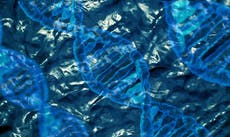Human ageing reversed in ‘Holy Grail’ study, scientists say
‘Ageing can, indeed, be targeted and reversed at the basic cellular-biological level,’ lead researcher says
Your support helps us to tell the story
From reproductive rights to climate change to Big Tech, The Independent is on the ground when the story is developing. Whether it's investigating the financials of Elon Musk's pro-Trump PAC or producing our latest documentary, 'The A Word', which shines a light on the American women fighting for reproductive rights, we know how important it is to parse out the facts from the messaging.
At such a critical moment in US history, we need reporters on the ground. Your donation allows us to keep sending journalists to speak to both sides of the story.
The Independent is trusted by Americans across the entire political spectrum. And unlike many other quality news outlets, we choose not to lock Americans out of our reporting and analysis with paywalls. We believe quality journalism should be available to everyone, paid for by those who can afford it.
Your support makes all the difference.Scientists claim to have successfully reversed the biological ageing process in a group of elderly adults.
In a first of a kind study, researchers from Tel Aviv University and the Shamir Medical Center used a form of oxygen therapy to reverse two key indicators of biological ageing: Telomere length and senescent cells accumulation.
As the human body gets older, it experiences the shortening of telomeres – the protective caps found at the end of chromosomes – and an increase in old, malfunctioning senescent cells.
A clinical trial involving 35 adults over the age of 64 sought to understand whether a method called Hyperbaric Oxygen Therapy could prevent the deterioration of these two hallmarks of the ageing process.
The subjects were placed in a pressurised chamber and given pure oxygen for 90 minutes a day, five days a week for three months.
At the end of the trial, the scientists reported that the participants’ telomeres had increased in length by an average of 20 per cent, while their senescent cells had been reduced by up to 37 per cent.
This is the equivalent to how their bodies were at a cellular level 25 years earlier, the researchers reported.
“Since telomere shortening is considered the ‘Holy Grail’ of the biology of ageing, many pharmacological and environmental interventions are being extensively explored in the hopes of enabling telomere elongation,” said Shai Efrati, a professor at the Faculty of Medicine and Sagol School of Neuroscience at Tel Aviv University, and co-author of the study.
“The significant improvement of telomere length shown during and after these unique HBOT protocols provides the scientific community with a new foundation of understanding that ageing can, indeed, be targeted and reversed at the basic cellular-biological level.”
It is the latest in a series of radical anti-ageing treatments, which seek to increase life expectancy and even make people look and feel younger.
The idea is that ageing is a disease that can be cured just like any other.
In 2015, the head of a biotech company made headlines after becoming patient zero in a novel gene therapy she claimed could make permanent changes to her DNA in order to combat muscle loss and other age-related conditions.
BioViva chief executive Liz Parrish received criticism from scientists for her experimental drug trial but claims to have increased the length of her telomeres in the five years since and recently claimed that death is optional.
During the latest trial in Israel, the participants did not undergo any lifestyle, diet or medication adjustments, which have previously been found to have moderate effects on a person’s biological age.
It is understood that instead the effects were the result of the pressurised chamber inducing a state of hyperoxia, or high-levels of oxygen in the blood, which caused the cell regeneration.
“Until now, interventions such as lifestyle modifications and intense exercise were shown to have some inhibition effect on the expected telomere length shortening,” said Dr Amir Hadanny, co-author of the study.
“However, what is remarkable to note in our study, is that in just three months of therapy, we were able to achieve such significant telomere elongation – at rates far beyond any of the current available interventions or lifestyle modifications.”


Join our commenting forum
Join thought-provoking conversations, follow other Independent readers and see their replies
Comments